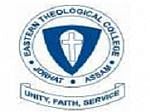M.Th (Master of Theology)

Master of Theology is a two-year postgraduate program that deals with the main areas of religion, culture, and its belief in society. M.Th offers candidates to set up a career in various areas of Academic Institutions, Education & Research Institutes, Religious Organisations, Educational Institutes, NGOs, Financial and Legal Firms, Charities, Churches, Schools, etc
M.Th Course Details
| Degree | Masters |
| Full Form | Master of Theology |
| Duration | 2 Years |
| Age | No specific age limit |
| Subjects Required | Bachelor's degree in Theology , Arts or Religious Sciences |
| Minimum Percentage | 50% |
| Average Fees | ₹15K - 30K PA |
| Similar Options of Study | B.Th, BA (Biblical and Theological Studies), Master of Divinity etc |
| Average Salary | INR 3 L per annum |
| Employment Roles | Resident Doctor, Healthcare Worker, Religious Teacher, Missionary, Non-profit Administrator, Pastor |
| Top Recruiters | Religious Organisations, Educational Institutes, NGO's, Financial and Legal Firms, Charities, Churches |
About Master of Theology
During the Master of Theology, students are given a deep understanding of how individuals and society study divine and natural different religious cultures to make sense of it. According to Wikipedia, “The Master of Theology is the postgraduate degree in masters awarded by universities and conservatories which studies the study of the divine nature, as well as religious belief in general. Master of Theology is the study of theology, part philosophy, part history, part anthropology, and the complex job of thinking about and debating the nature of God.”
Table of Contents
- M.Th Eligibility Criteria
- M.Th Admission Process
- Popular M.Th Entrance Exams
- Top M.Th Colleges
- Fees Structure for M.Th Colleges
- Syllabus and Subjects for M.Th
- Why Choose an M.Th?
- Preparation Tips for M.Th
- Scope of Higher Education after M.Th
- M.Th Salary
- Career Options After M.Th
- Skills to Excel
Eligibility Criteria for Master of Theology
Master of Theology admission is offered to only those students who meet the eligibility requirements. The candidates must have a bachelor's degree in Science, Arts, Commerce with a minimum 50% aggregate score in the final examination. There is no age limit for this course. The admission process can be either entrance exam-based or merit-based.
How To Get Admission in Master of Theology?
Students must ensure that they satisfy the eligibility criteria for M.Th in India. Master of Theology admission 2021 is done through entrance exam scores or on a merit basis. Admission procedures may vary across different Master of Theology universities in India. Mentioned below are the details of the admission process in general:
How to Apply?
Master of Theology course details and procedures for admission can be found on the college's official websites. To apply for the course, students must visit the official university admission portal and register for the entrance exam. After that fill the application form by providing the required details.
Selection Process
Admission is strictly offered to only those students who clear the Master of Theology eligibility criteria. The list of shortlisted candidates can be availed through the college’s official website or will be informed through email regarding the result and the further admission process.
Popular Entrance Exams for Master of Theology
Admission to the Master of Theology course in India is not mainly through entrance examinations. Entrance exams for Master of Theology are usually conducted at the college and university level. The most common exams that most candidates apply to are as follows:
- AMU
- Union Biblical Seminary Entrance Test
- Gurukul Lutheran Theological College Entrance Test
- Senate of Serampore College Entrance Test
A Quick Glance at the Master of Theology Entrance Exams
To get admitted, students must ensure whether they satisfy the eligibility for the Master of Theology. To clear the entrance exam, students should study the exam pattern and syllabus well before time. This will help students in timely preparation for the entrance exams. Listed below is the general pattern for the entrance exams:
- The entrance exam has multiple sections that test different parts of a student's knowledge from Christian, Islamic, Hinduism, and any other Religious Knowledge, etc.
- The examination will be conducted through offline mode or online mode.
- The time duration to complete the paper is 2 hours.
- Paper consists of 100 multiple choice questions carrying 100 marks.
Top 10 Master of Theology Colleges in India
Various institutes offer Master of Theology courses. Students can opt for the Master of Theology best college depending upon their merit and specialization needed. Some of the Master of Theology top colleges are listed below:
|
Sl. No. |
Name of the Institute |
|
1 |
|
|
2 |
|
|
3 |
|
|
4 |
|
|
5 |
|
|
6 |
|
|
7 |
|
|
8 |
|
|
9 |
|
|
10 |
Fee Structure for Master of Theology
Master of Theology fees ranges from INR 20,000 - 2 LPA. The fees may vary according to the college or university based on the type of institute, location, infrastructure, faculties, and facilities available. Below listed are the Master of Theology fees structure of some colleges:
|
Sl. No. |
Name of the Institute |
Average Annual Fees |
|
1 |
Andhra Christian Theological College, Hyderabad |
INR 50,000 PA |
|
2 |
Bishop’s College, Bengal |
INR 60,000 PA |
|
3 |
Martin Luther Christian University, Meghalaya |
INR 1.5 PA |
|
4 |
Aizawl Theological College, Mizoram |
INR 80,000 PA |
|
5 |
The Sam Higginbottom University Of Agriculture, Technology, And Sciences, Allahabad |
INR 35,000 PA |
Syllabus and Subjects for Master of Theology
Master of Theology is a two-year postgraduate course in religious belief and its societal culture. The Master of Theology course is a comprehensive study that prepares students to work in the sectors of religious, societal, cultural practices deeply into the nature of god in areas such as Academic Institutions, Education & Research Institutes, Religious Organisations, Educational Institutes, NGO's, Workplace, Financial and Legal Firms, Charities, Churches, Schools, etc.
The subjects related to this course vary according to specializations and the institutes. The syllabus includes theory papers and practical papers. The compulsory subjects include:
- Greek Syntax
- Advanced Theology
- Advanced Theology
- Premillennialism
- World Missions
Read More About M.Th Syllabus and Subjects
Why Choose Master of Theology?
Students often wonder about Master of Theology course details before choosing the course. Before deciding on a career, students come across queries like, "What is the Master of Theology course?" and "Why choose Master of Theology?”. To clearly understand answers to these questions, we have framed the following three pointers:
What is Master of Theology All About?
Master of Theology is a postgraduate program that deals with providing a deep study about the nature of god and those religious and cultural beliefs. The Master of Theology course prepares postgraduates to work alongside private and government societies to complete the task. A theology degree will teach you about religious ethics, morals, history, philosophy, and literature, among other things. An associate's degree in basic theology is required.
What Does a Master of Theology Graduate Do?
The Master of Theology postgraduates can work as Professor, Relief Worker, Children Pastor, Resident Doctor, Healthcare Worker, Religious Teacher, Missionary, Non-profit Administrator, Pastor, Senior Pastor, Youth Pastor, Minister, etc. Theology aids in the communication of faith and hence aids in the creation of an appealing understanding for those who do not yet know Christ.
Pastor: The job of the Pastor is to lead worship and deliver sermons. In churches, they use examples to explain holy things. Pastors also provide services during weddings and funerals.
Reasons Why Master of Theology Can Fetch Students a Rewarding Career?
Career prospects for a Master of Theology greatly vary. It depends on the respective specialization and demand of the course. This course mainly focuses on the study of religious culture and its impact on society, individuals, nature, environment, religious places, work which concentrates on all the knowledge of the theology process of an organization.
Career Scope and Options: A Master of Theology course provides a lot of job opportunities, students who are willing to complete the course can have their careers set as a Worker, Religious Teacher, Missionary, Non-profit Administrator, Pastor, Senior Pastor, Youth Pastor, Minister, etc.
Read More About M.Th Jobs
Preparation Tips for Master of Theology
Some of the course preparation tips for the Master of Theology course are listed below:
Know The Syllabus And Exam Pattern: To prepare well for the entrance exams the students should be aware of the syllabus, exam pattern, and the research paper and books to study the information required.
Practice Question Papers: Practice solving previous years’ papers to understand the type of questions asked. It also helps to improve and prepare students for the exam.
Take Mock Tests: Solving as many mock tests can help students gain speed and accuracy.
Scope For Higher Education
After completion of a Master of Theology course, the candidates can choose to take up jobs or can continue with their further studies. An additional degree in the same field improves job opportunities. Obtaining higher education can help graduates learn more about the subject and enter the field of Religion and Faith. Additionally, it can also help them increase their salary. Some higher education options are:
- Ph.D. in Theology
- M.Phil Social Work
- Master of Divinity
Salary of a Master of Theology Graduates
The average salary of an employee with a Master of Theology is INR 2-5 LPA (Source: Naukri) for freshers. The salaries and annual earnings depend on the specific companies they work for, the methods of practice, expertise, and other related aspects.
Read More About M.Th Salary
Career Options After Master of Theology
After completion of the Master of Theology course, the postgraduates can find jobs in areas like Academic Institutions, Education & Research Institutes, National And Local Government, NGOs, Charities, Social Services, Church, Financial And Legal Firms, The National Health Service, Personal Relations, Advertising, Sales And Marketing Companies, Media Companies. Some job roles offered to postgraduates are:
- Pastor
- Chaplain
- Religion Teacher
- Religious Translator
- Social Worker
Skills That Make students The Best Master of Theology Graduates
Some students are interested in learning about their religious belief and culture and take interest in studying its origin, source, history, and communicating it to the religious society. Studying different spirituality, techniques, religious books, practising cultures, keeping the faith, and believing helps the students to work in different sectors professionally in the future. Some required skills are:
- Problem Solving Skills
- Communication
- Decision Making Skills
- Writing Skills
- Management Skills










